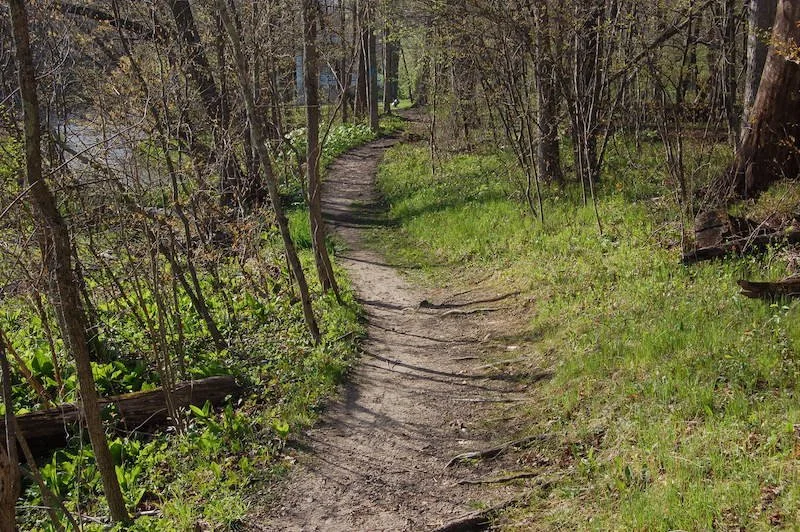Where Did Jesus Go?
/by Rev. Eric Folkerth
“Did not our hearts burn within us?”
This is the question that Jesus’ two disciples ask after their encounter with him along the Road to Emmaus. And it’s a question we’ll unpack this week as we continue our series “Where Did Jesus Go?”
We’re looking at Jesus’ post-resurrection appearances and how Jesus never goes back or valorizes the cross. Jesus never invites the disciples back to visit the tomb. Instead, he meets his friends and followers around communal meals, ordinary places, and the beauty of the natural world.
The “cross,” it seems, was not the most important thing Jesus wanted his followers to remember once he was resurrected. Instead, he wanted them to remember these kinds of moments.
This Sunday, the Gospel lesson tells of Jesus talking with two friends along the road to Emmaus. For reasons the text doesn’t make clear, they don’t recognize him. Maybe it’s their grief. Maybe it’s their fear and confusion. The text doesn’t actually say.
What it *does* say is that they go for walk together. They walk along the road and they talk as they are walking.
So it is that: walking on the road is one of the places where Jesus goes.
He walks. He talks. He gets out in the open air.
Dennise and I have found the wisdom in walking lately. Given that the temps are warmer and the light lasts longer, we’ve taken to “walking to dinner” to local restaurants. It’s a joy to just spend time together, talking about our days and seeing the green beauty of the natural world.
When I think about walking, I often think of Steve Jobs. Jobs was famous for going on long walks through his neighborhood —or around the Apple campus— with titans of industry.
Coworkers and famous technologists would often show up for meetings only to find that instead of huddling around a table in an air-conditioned office, Jobs would take them for a walk —up, down, and over the hills of his neighborhood.
Jobs’ biographer Walter Isaacson suggests that some of the most important technological innovations of the past thirty years happened on those walks.
That’s actually unsurprising. Studies from Stanford University have shown that our creativity is raised by almost 60 percent when we take a walk. I would suggest that is why walks are also moments when our spirituality is also awakened and attuned to the grace of God all around us.
As the walk ends in the Gospel story, the two disciples implore Jesus to stay with him in Emmaus. He breaks bread with them, and in the breaking of the bread, suddenly their eyes are opened and they recognize him.
As before, this isn’t really explained. But it seems that the act of being around the *table* and sharing the bread is an act in which they see Jesus.
So…where did Jesus go?
This week, he goes..
…on a walk.
…back to a table.
Sure, these are ordinary places. But if God is truly an incarnation God —present in and through all things— then like these two disciples, our “ordinary moments” can become “holy moments.”
The more our spiritual eyes are open, the more we are looking for the holy in the everyday, the more we are likely to find it.
Sadly, like these two disciples, instead of living fully into each day…instead of deeply embracing holy moments like waking or eating…we increasingly stay glued to our indoor screens and thereby miss the beauty around us.
We say, “I’ll walk later…”
Or, “I’ll see my friend, later…”
But then tomorrow comes, and we fail to do it again.
Therefore, seize the beauty of each present-day, friends. Jesus goes to the walking path and the table to remind us how to live life as God’s people of the resurrection.
I tend to think there is some regret in the rhetorical question of these two disciples: “Did not our hearts burn within us?”
How did we not see that it was Jesus?
How did we not understand that it was a holy moment?
The key to avoiding this kind of regret and of seeing the holy in the everyday is being *present* in the NOW.
Take that walk….but also breathe in the moment while you’re doing it.
Eat that meal with friends…but also see them as the God-kissed humans that they are.
When we keep our spiritual eyes open, every road, every meal, every breaking of every loaf of bread has the possibility to be a holy moment.


